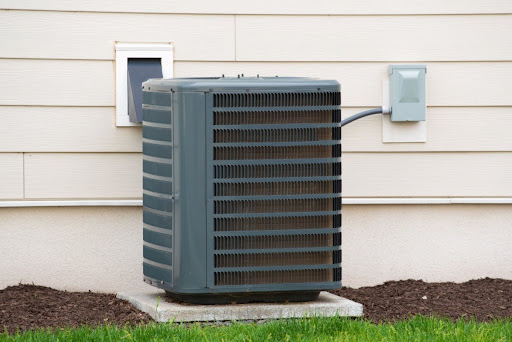How to Choose An Air Conditioner for Your Home? A Complete Guide

How to Choose An Air Conditioner for Your Home? A Complete Guide
When the temperature rises outside, a good air conditioner can become your best friend. But with so many options on the market, how do you pick the right one? This guide aims to simplify the process of how to buy an air conditioner that fits your needs and budget. By the end, you’ll be equipped with the knowledge to select the best air conditioning system for your home.
Importance of Air Conditioners
Before we discuss how to choose an air conditioner, it’s important to know what makes these systems so crucial to our home comfort. Central air can do more than cool your home. It can also significantly improve indoor air quality and reduce humidity levels, making your environment more comfortable and healthier. A well-chosen air conditioner can help you sleep better at night and function better during the day by maintaining a consistent, cool temperature in your home.
Benefits of Choosing the Right Air Conditioner
As a homeowner, it’s vital that you know how to choose an air conditioner that meets your household’s needs. That’s because selecting the right air conditioner can have a multitude of benefits:
- Improved Comfort: A correctly sized air conditioner will maintain a consistent temperature throughout your home.
- Energy Efficiency: Modern air conditioners are designed to use less energy, which translates to lower utility bills.
- Better Air Quality: Many air conditioners come with filters that can reduce pollen, dust, and other allergens in the air.
- Quiet Operation: The best air conditioning system will run quietly. Consider selecting a unit that won’t interrupt your daily activities or sleep.
How Air Conditioners Work
At its core, an air conditioner extracts heat from the inside of your home and transfers it outside. It uses a refrigerant to cool down the air and a fan to blow the cool air back into your house. This process not only cools your home but also reduces humidity levels.
Types of Air Conditioners
If you want to know how to choose an air conditioner, it’s important to start with the basics. There are several types of air conditioners, each suited to different situations and needs. Here, we’ll focus on two popular types: central air conditioners and ductless AC units.
Central Air Conditioners
Central air conditioners are often the preferred choice for cooling entire homes. They use a network of ducts to distribute cool air efficiently throughout the house. Here are the key advantages and limitations:
- Advantages:
- It can cool multiple rooms evenly at the same time.
- These systems are generally quieter than other types of AC units because the compressor and fan motor are located outside.
- Often increases the resale value of your home.
- Limitations:
- It requires a network of ducts, which can be expensive to install if they are not already in place.
Ductless Mini-Split AC Units
Ductless air conditioners, or split systems, are a versatile solution for homes without ductwork. They typically consist of an indoor unit mounted on a wall and an outdoor compressor.
- Advantages:
- Easier to install than central air conditioners, especially in homes without existing ductwork.
- Offers individual control of cooling zones, which can lead to energy savings.
- Less invasive installation process.
- Limitations:
- It can be more expensive per unit of cooling capacity than central systems.
- Some people may not like the appearance of the indoor units. However, ductless mini-splits can be mounted on the ceiling, floor, and wall — so you can choose the best option for you!
Factors to Consider When Choosing an Air Conditioner
As you can see, there are various HVAC system options available. Hopefully, this guide has helped you narrow down your choices to either a central air conditioner or a ductless unit. However, if you’re still wondering how to choose an air conditioner that meets your needs, you’re not alone. Selecting the right air conditioning unit is essential to achieve your desired temperature and efficiency goals. Let’s explore the key factors you should consider to make an informed decision.
Room Size and Cooling Capacity
The size of the room or house you want to cool is the first thing to consider. Air conditioners’ cooling power is measured in BTUs (British Thermal Units). Larger spaces require a system with a higher BTU output to cool the room efficiently. However, a unit that is too large will use more energy without improving cooling performance.
Climate and Humidity Levels
In humid climates, your air conditioner needs to work harder to remove moisture from the air. If you live in a humid area, look for units that are specifically designed for high-humidity environments.
Energy Efficiency and Operating Costs
Look for air conditioners with high Seasonal Energy Efficiency Ratio (SEER) ratings. The higher the SEER rating, the more energy-efficient the unit is. This means lower energy bills for the same amount of cooling. Seek out air conditioners that meet the strict energy efficiency guidelines set by the U.S. Environmental Protection Agency.
Noise Level and Maintenance Requirements
Consider the noise levels of the air conditioner. Units with lower decibel ratings will be quieter. Also, think about maintenance needs; some units come with washable filters, which can reduce the long-term cost and effort required to keep the unit running smoothly.
Airflow Rate and Coverage Area
Make sure the air conditioner you choose can adequately cover the area you need to cool. Check the airflow rate — measured in cubic feet per minute (CFM) — to gauge how well the unit distributes air throughout the room.
Installation Requirements for Different Types of Air Conditioners
Each type of air conditioner has different installation needs:
- Central air conditioning might require ductwork modifications or upgrades.
- Ductless units need a suitable wall space and access to electricity.
Proper Placement for Optimal Cooling Effectiveness
The location of your air conditioner affects its efficiency. Avoid placing outdoor units in direct sunlight or near heat-producing appliances. You’ll want to check that there’s enough clearance around the unit for proper airflow.
Maintenance Tips for Extending the Lifespan of the Air Conditioner
Regular maintenance can keep your air conditioner running efficiently for years. This includes:
- Cleaning or replacing the air filters regularly.
- Checking and cleaning the evaporator and condenser coils.
- Making sure the area around the outdoor unit is clear of debris and foliage.
Budget Considerations
While a cheaper unit might be tempting, it’s important to consider the long-term operating costs. More efficient, albeit more expensive, air conditioners can lead to significant savings on energy bills over time.
Considering Energy Efficiency Ratings and Potential Rebates
Look for high SEER ratings when choosing an air conditioner. Also, check for local rebates or incentives for installing energy-efficient units.
Energy Consumption and Carbon Footprint
Opting for a more energy-efficient air conditioner reduces your home’s overall carbon footprint. It’s a step toward more eco-friendly living, cutting down on greenhouse gas emissions associated with electricity production.
Eco-friendly Cooling Options
Consider air conditioners that use refrigerants with lower global warming potential (GWP). Some newer models use more environmentally friendly refrigerants that contribute less to global warming.
Disposal and Recycling Considerations
When replacing an old air conditioner, properly dispose of it to prevent the release of harmful refrigerants into the atmosphere. Many retailers offer recycling programs for old units.
Ready for a New AC? Contact Zenner & Ritter Today!
Selecting the right air conditioner involves understanding your needs, from the size of your space to the specifics of your climate. By considering factors like energy efficiency, noise levels, and the type of AC unit that best fits your space, you can find an air conditioner that offers comfort, saves money, and lasts for years.
Now that you know how to buy an air conditioner that fits your needs, why wait? If you’re ready to take the next step and need professional guidance or installation, Zenner & Ritter is here to help with all of your AC installation and service needs in Buffalo, NY, or the surrounding area.
With experienced technicians and a commitment to quality, we can assist with everything from choosing the right unit to installation and maintenance. Schedule your AC service today or learn more about our AC replacement options. Stay cool and comfortable with the right air conditioner for your home!
